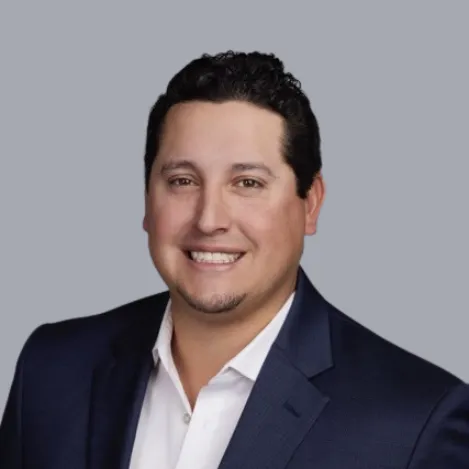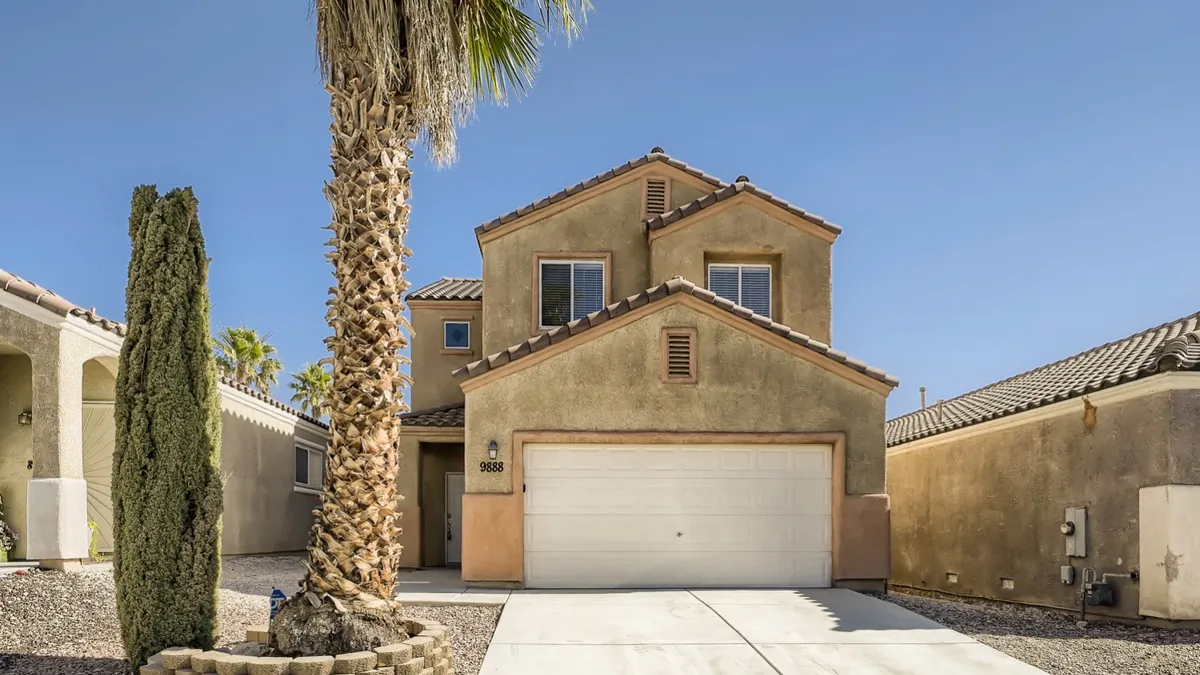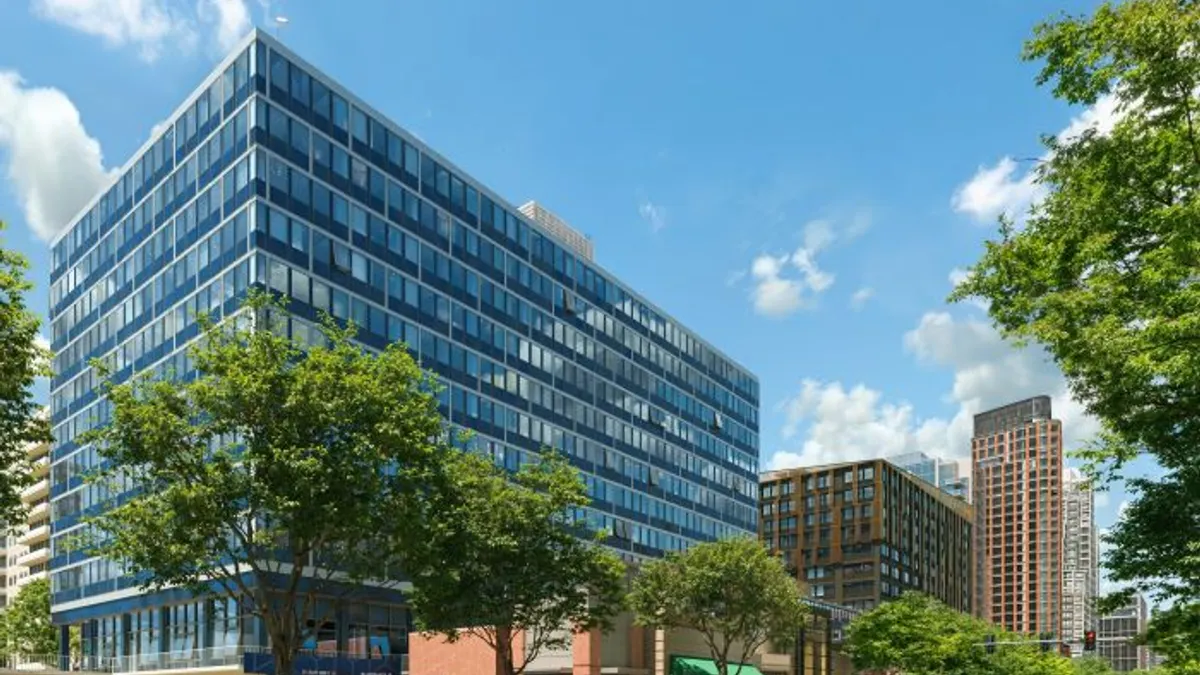As expenses have risen over the past several years, managers have turned to automating and centralizing property operations in order to increase their return on investment.
However, a firm can only go so far with centralization before customer service suffers from a lack of human interaction. To preserve that benefit, Roberto Martinez, national field operations manager at Denver-based property manager and real estate investor Atlas Real Estate, strives for a balance. He aims to prioritize human touchpoints and communication with residents, both in maintenance and in the front office.
“Having more hands on what we're doing is the most critical thing,” Martinez told Multifamily Dive. “Having actual people reviewing every work order coming in, being able to talk to residents, talk to property managers, communicate with each of them, be dedicated to a specific market, has changed what we do.”
Here, Martinez talks with Multifamily Dive about creating good tenant experiences, centralized staffing strategies and preventive maintenance as a value proposition for owners.
This interview has been edited for brevity and clarity.
MULTIFAMILY DIVE: How do you strike a balance between reducing costs and creating good experiences for tenants?
ROBERTO MARTINEZ: The complexity of the world we live in has made the day-to-day operations of maintenance, of property management, much more compliance-based and immediate satisfaction-based than it used to be.

So when we talk about providing great customer service, I would say that 95% of customer service lies within communication, and the last 5% is execution. We're used to immediate gratification, hearing something from someone, calling in and not getting a robot, and that's part of the push of what Atlas is doing in order to make sure that residents always know what's going on at all times.
We've partnered with great platforms like [property maintenance software provider] Property Meld in order to make sure that our communication channels are crystal clear.
And the last part is sourcing the maintenance properly and vetting the right vendors and making sure we have the right people we're partnering with. It’s about providing clear communication and making sure that we hear our residents. Sometimes we can't always solve the issue, but making sure they feel understood and heard is probably 95% of our battle.
Does Atlas make use of centralized staffing strategies in any parts of its business?
We do. Our property management is located within each market we're actually in, so we're not remote market managing from really far away. We have professionals that are market experts.
On the maintenance standpoint, we do have our national vendor manager and our maintenance coordination team lead. They're both leading that team. One is in Colorado Springs, the other one is in Mexico City. So they work with us out of Mexico and contract with us.
And then you have our national vendor manager that's stateside. You have myself, so you have a handful of people that are working in both markets and making everything work. But that centralized staffing that we use out of Mexico City is pretty critical. They're part of our Atlas team.
How has this strategy impacted the business?
We used to have maybe one or two people doing this, and now we realize the need to have a person per market, a person per property manager, and those touchpoints are where we were able to create a connection with residents. People forget that maintenance typically has more touchpoints in customer service than your property manager does.
Four or five times a year you see maintenance. Your property management office you see maybe once or twice, when you move in and move out.
So we have a huge opportunity to not just impact what we're doing on a maintenance level, but impact how people choose to renew with Atlas, if they want to stay with us.
How do you implement tech into your operations?
Most of the systems are usually either partially automated or fully automated. We have people monitoring those and using them. If you message us directly, you're going to get a person. You call us directly, you're going to get a person.
If it's after hours, we partner with EZ Repair Hotline, and they're going to get a person who's going to be able to answer that.
Critical to what we do are those partnerships with Property Meld and EZ Repair Hotline that give us all the data, information and workflows that we use in order to mitigate a lot of issues for residents. A lot of times we don't need to send somebody out, but maybe we just need to provide the right information, and that resident can handle it as quickly as we could get to it ourselves.
Artificial intelligence has also changed the way we do things. It's provided an extra tool in our arsenal for our maintenance coordination team to use to try and solve problems for residents and really up our resident satisfaction score.
What is your approach to preventive maintenance?
Being on top of things, making sure that they're being repaired and maintained properly is going to save you an astronomical amount of money in the long run. We always say a small fix now prevents a big fix later.
We give a nice chart to an owner, and then we also provide bullet points that show, hey, these are all the issues that can happen if you do not repair this at this time. And we put costs there, and it's kind of eye opening to say, oh my goodness, those are a lot of costs that can happen if I don't take care of this home or do this right now.
It’s easy to delay and say, I'll do it next year, or I'll do it in six months, or I'll do it when the resident moves out. But making sure that we're educating owners and preventing those issues from happening is going to save thousands of dollars and far exceeds the value of the original repair at least 75% of the time.
What are your biggest challenges?
Right now, the whole country feels the challenge to find vendor sourcing. Manual labor jobs, they've gone down. Even when you do find skilled work, it's hard to find skilled work that works faster and is available.
So sourcing the right people, having the right partnerships, is really challenging to do, and you see different maintenance sectors where people are building out their own plumbing teams and their own electrical teams or cleaning teams, and that's becoming the new norm.
We look at that with open eyes and say, maybe that's the change we need to make down the line. But what we do is we make our vendors and our partners feel like parts of Atlas. They're an extension of our team, and they're an extension of what we do and how they treat our residents reflects on us, and so we want those partnerships to be valuable.
Correction: Atlas Real Estate partners with property maintenance software provider Property Meld for its operations.









